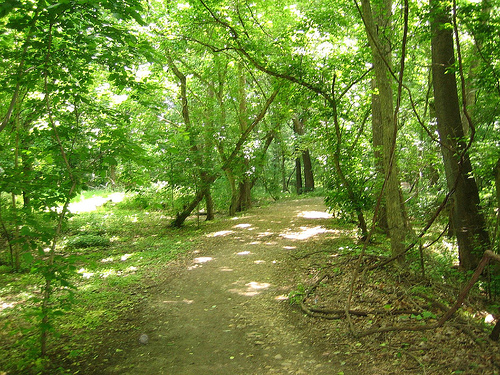
One of my favorite places in D.C. is Rock Creek Park. I frequently go there for hikes because I enjoy being outside and staying active. Want to know another reason why it’s so great? It costs absolutely nothing to get in! Washington, D.C. is a great city to find free things to do, and you can find lots of similar outdoor recreational opportunities all across the country. But this isn’t the case everywhere. I recently found out that some places charge people entrance fees to parks and wildlife areas. These places offer so many benefits to people that everyone should be able to visit them, regardless of their income.
Although many national parks never charge an entrance fee, there are still several that do. Effective on January 1st, the Georgia Department of Natural Resources has implemented a Georgia Outdoor Recreational Pass (GORP) that is required for adults (age 16-64) to use 32 properties that are managed under its Wildlife Resources Division. While the annual cost of a pass is under $20, and cheaper three-day and small-group package options exist, it’s less about the dollar amount and more about the principle behind the fee.
- GORP 3-Day: $3.50
- GORP Plus 3-Day Fishing: $3.50
- GORP Annual: $19
- Small Group (up to eight people), 3-Day: $10 per vehicle
- Small Group, Annual: $35 per vehicle
Georgia residents used to only need a pass for fishing or hunting. Now, they are required to buy a pass in advance of visiting the state’s 32 wildlife areas. Dan Forster, Director of Wildlife Resources Division, explains that with a tightening budget, the pass will help alleviate maintenance costs. Forster also notes that the 32 properties were chosen based on highest levels of public traffic.
For some, the fee may seem reasonable and affordable. But for many, they simply can’t afford it. While the fee promises to go towards maintenance in wildlife areas, it also places a clear dollar-amount limit as to who can afford to enjoy these areas. Affordability is just one of the many recreational access issues that determines who participates in outdoor recreation. Other issues include a lack of public knowledge and education, increasing demand with limited space and proximity to opportunities. Access issues, closely tied to health and environmental justice, tend to be most prevalent in lower income areas, where people may not be able to afford fees and there is less public awareness about recreational opportunities. It’s true that maintenance work is necessary in order to keep our parks and wildlife areas safe and enjoyable for everyone, but we also need to make sure that everyone can afford to use them.